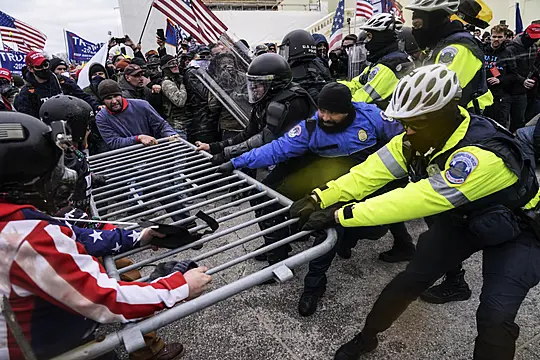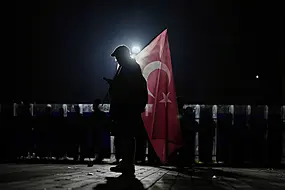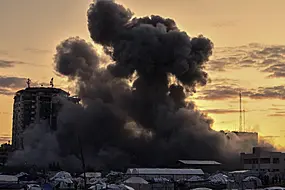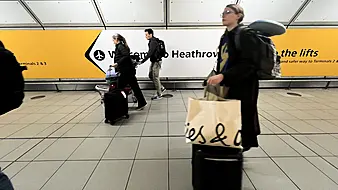Former security officials have blamed faulty intelligence for the disastrous failure to anticipate the violent intentions of the mob that invaded the US Capitol and interrupted the certification of the presidential election.
Giving evidence for the first time about the insurrection, officials including the former chief of the Capitol Police blamed other federal agencies — and each other — for their failure to defend the building as supporters of then-president Donald Trump overwhelmed security barriers, breaking windows and doors and sending legislators fleeing from the House and Senate chambers.
They said they expected the protests to be similar to two pro-Trump events in late 2020 that were far less violent.
Former Capitol Police chief Steven Sund described a scene that was “like nothing” he had seen in his 30 years of policing.

“When the group arrived at the perimeter, they did not act like any group of protesters I had ever seen,” the ousted chief said, arguing that the insurrection was not the result of poor planning but of failures across the board from many agencies and officials.
“No single civilian law enforcement agency – and certainly not the USCP – is trained and equipped to repel, without significant military or other law enforcement assistance, an insurrection of thousands of armed, violent and co-ordinated individuals focused on breaching a building at all costs,” Mr Sund said.
The joint hearing, part of an investigation by the Senate Homeland Security and Governmental Affairs Committee and the Senate Rules Committee, is the first time the officials have given evidence publicly about the events of January 6.
Former Senate Sergeant-at-Arms Michael Stenger, former House Sergeant-at-Arms Paul Irving and Robert Contee, acting chief of police for the Metropolitan Police Department, are also giving evidence.
Mr Sund, Mr Irving and Mr Stenger resigned under pressure immediately after the deadly attack.

“We must have the facts, and the answers are in this room,” Senate Rules Committee chairwoman Amy Klobuchar said at the beginning of the hearing.
Mr Sund told the legislators he learned only after the attack that his officers had received a report from the FBI’s field office in Norfolk, Virginia, that forecast, in detail, the chances that extremists could commit “war” in Washington the following day.
The head of the FBI’s office in Washington has said that once he received the January 5 warning, the information was quickly shared with other law enforcement agencies through the joint terrorism taskforce.
Mr Sund said on Tuesday that an officer on the taskforce had received that memo and forwarded it to a sergeant working on intelligence for the Capitol Police, but the information was not put forward to any other supervisors. Mr Sund said he was not aware of it.
The officials have also disagreed on when the National Guard was called and on requests for the guard beforehand.
Chairman @SenGaryPeters leads HSGAC’s first joint hearing investigating the security & intelligence failures that led to the Capitol attack. https://t.co/smwuk1HuBd
— Homeland Security & Govt. Affairs Committee — Dems (@HSGAC) February 23, 2021
Mr Sund said he spoke to Mr Stenger and Mr Irving about requesting the National Guard in the days before the riot, and that Mr Irving said he was concerned about the “optics” of having them present.
Mr Irving denied that, saying Mr Sund’s account was “categorically false”. Safety, not optics, determined the security posture, he said, and the top question was whether intelligence supported the decision.
“We all agreed the intelligence did not support the troops and collectively decided to let it go,” Mr Stenger said, adding that they were satisfied at the time that there was a “robust” plan to protect Congress.
After smashing through barriers at the perimeter, the invaders engaged in hand-to-hand combat with police, injuring dozens of them, and broke through multiple windows and doors, sending legislators fleeing from the House and Senate chambers and interrupting the certification of the 2020 presidential election.
Five people died as a result of the violence, including a Capitol Police officer and a woman who was shot by police as she tried to break through the doors of the House chamber with legislators still inside.







